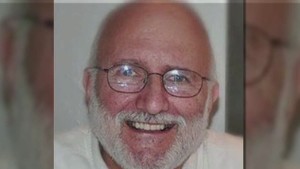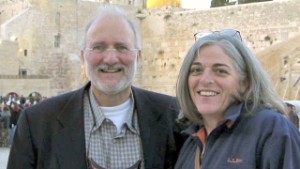Paying to play goes from the Senate to the State Department. Video here.
MIAMI — The Obama administration overturned a ban preventing a wealthy, politically connected Ecuadorean woman from entering the United States after her family gave tens of thousands of dollars to Democratic campaigns, according to finance records and government officials.
The woman, Estefanía Isaías, had been barred from coming to the United States after being caught fraudulently obtaining visas for her maids. But the ban was lifted at the request of the State Department under former Secretary of State Hillary Rodham Clinton so that Ms. Isaías could work for an Obama fund-raiser with close ties to the administration.
It was one of several favorable decisions the Obama administration made in recent years involving the Isaías family, which the government of Ecuador accuses of buying protection from Washington and living comfortably in Miami off the profits of a looted bank in Ecuador.
The family, which has been investigated by federal law enforcement agencies on suspicion of money laundering and immigration fraud, has made hundreds of thousands of dollars in contributions to American political campaigns in recent years. During that time, it has repeatedly received favorable treatment from the highest levels of the American government, including from New Jersey’s senior senator and the State Department.
The Obama administration has allowed the family’s patriarchs, Roberto and William Isaías, to remain in the United States, refusing to extradite them to Ecuador. The two brothers were sentenced in absentia in 2012 to eight years in prison, accused of running their bank into the ground and then presenting false balance sheets to profit from bailout funds. In a highly politicized case, Ecuador says the fraud cost the country $400 million.
The family’s affairs have rankled Ecuador and strained relations with the United States at a time when the two nations are also at odds over another international fugitive: Julian Assange, the WikiLeaks founder, who has taken refuge in the Ecuadorean Embassy in London.
But while scrutiny has typically focused on whether the family’s generous campaign donations have helped its patriarchs avoid extradition, the unorthodox help given to Ms. Isaías, the daughter of Roberto, has received little attention.
In the spring of 2011, Ms. Isaías, a television executive, was in a difficult situation.
Her father and uncle were Ecuadorean fugitives living in Miami, but she was barred from entering the United States after she brought maids into the country under false visa pretenses and left them at her parents’ Miami home while she traveled.
“Alien smuggling” is what American consular officials in Ecuador called it.
American diplomats began enforcing the ban against Ms. Isaías, blocking her from coming to Miami for a job with a communications strategist who had raised up to $500,000 for President Obama.
What happened next illustrates the kind of access and influence available to people with vast amounts of money.
A Senator’s Assistance
For more than a year, Senator Robert Menendez, Democrat of New Jersey, and his staff engaged in a relentless effort to help Ms. Isaías, urging senior government officials, including Mrs. Clinton’s chief of staff, Cheryl Mills, to waive the ban. The senator’s assistance came even though Ms. Isaías’s family, a major donor to him and other American politicians, does not live in his state.
The Obama administration then reversed its decision and gave Ms. Isaías the waiver she needed to come to the United States — just as tens of thousands of dollars in donations from the family poured into Mr. Obama’s campaign coffers.
An email from Mr. Menendez’s office sharing the good news was dated May 15, 2012, one day after, campaign finance records show, Ms. Isaías’s mother gave $40,000 to the Obama Victory Fund, which provided donations to the president and other Democrats.
“In my old profession as a prosecutor, timelines mean a lot,” said Ken Boehm, a former Pennsylvania prosecutor who is chairman of the National Legal and Policy Center, a government watchdog. “When a donation happens and then something else happens, like the favor, as long as they are very, very close, that really paints a story.”
In 2012, the Isaías family donated about $100,000 to the Obama Victory Fund. Campaign finance records show that their most generous donations came just before a request to the administration.
Ms. Isaías’s mother, María Mercedes, had recently donated $30,000 to the Senate campaign committee that Mr. Menendez led when she turned to him for help in her daughter’s case. At least two members of Mr. Menendez’s staff worked with Ms. Isaías and her father, as well as lawyers and other congressional offices, to argue that she had been unfairly denied entry into the United States.
Over the course of the next year, as various members of the Isaías family donated to Mr. Menendez’s re-election campaign, the senator and his staff repeatedly made calls, sent emails and wrote letters about Ms. Isaías’s case to Mrs. Clinton, Ms. Mills, the consulate in Ecuador, and the departments of State and Homeland Security.
After months of resistance from State Department offices in Ecuador and Washington, the senator lobbied Ms. Mills himself, and the ban against Ms. Isaías was eventually overturned.
Mr. Menendez’s office acknowledged going to bat for Ms. Isaías, but insisted that the advocacy was not motivated by money.
“Our office handled this case no differently than we have thousands of other immigration-related requests over the years, and to suggest that somehow the senator’s longstanding and principled beliefs on immigration have been compromised is just plain absurd,” said Patricia Enright, the senator’s spokeswoman.
Ms. Enright said Mr. Menendez’s office worked on the case because Ms. Isaías had previously been allowed to travel to the United States six times despite the ban, and the decision to suddenly enforce it seemed arbitrary and wrong. She said the senator routinely acted on cases he got from across the nation.
In the Isaías case, the senator wrote seven letters for various members of the family, including four on April 2, 2012, alone.

A month after succeeding in Ms. Isaías’s case, Mr. Menendez sent another letter to the head of the United States Citizenship and Immigration Services to waive a ban on her sister, María — who had also been deemed an immigrant smuggler because she had brought maids into the United States and left them with her parents while she traveled abroad.
As that letter went out, their mother gave $20,000 more to the Obama Victory Fund.
Immigration officials forwarded the senator’s inquiries to Homeland Security Investigations, the immigration bureau’s investigative arm. Officials there noticed that the Isaías family had made several donations to the senator, and informed the F.B.I. in Miami.
Agents with Homeland Security Investigations are working to have the Isaías brothers deported. The Ecuadorean government has repeatedly requested that the men be extradited, but Washington has declined, saying that the extradition request was poorly prepared and did not meet legal standards. The criminal case in Ecuador was also marred by irregularities.
Support on Capitol Hill
The Isaías brothers consider themselves political exiles unfairly attacked by the Ecuadorean government and have garnered support on Capitol Hill, where sentiment against Ecuador’s leftist president runs strong.
But the case involving Estefanía could prove awkward for Mrs. Clinton, who was in charge of the State Department at the time high-ranking officials overruled the agency’s ban on Ms. Isaías for immigration fraud, and whose office made calls on the matter
Alfredo J. Balsera, the Obama fund-raiser whose firm, Balsera Communications, sponsored Ms. Isaías’s visa, was featured recently in USA Today as a prominent Latino fund-raiser backing Mrs. Clinton for president in 2016.
Mr. Balsera declined repeated requests to explain what work Ms. Isaías had done for his company, which has close ties to the Obama administration. To stay in the country under her three-year visa, Ms. Isaías would have to remain employed by Balsera Communications, request a change of immigration status or get another employer to sponsor her.
The company website does not list her as one of its 12 employees, though it has biographies and photos of even junior account executives, and news releases were issued when others were hired. Ms. Isaías’s name has not been mentioned on the company’s blog, Facebook page or Twitter timeline, and she is not present in any of the dozens of photographs posted on social media sites of company outings, parties, and professional and social events.
David A. Duckenfield, a partner at the company who is now on leave for a position as deputy assistant secretary of public affairs at the State Department, said Ms. Isaías worked for the firm but declined to comment further. Another senior executive at the firm said she must work outside the office because he had never heard of her.

A spokesman for Mrs. Clinton and her chief of staff, Ms. Mills, denied any special treatment for Ms. Isaías. Although Ms. Mills is unlikely to serve in any official capacity on a potential 2016 presidential campaign, she would undoubtedly be a strong behind-the-scenes presence and one of a small number of longtime advisers whom Mrs. Clinton would rely on for advice.
“There are rigorous processes in place for matters such as these, and they were followed,” said the spokesman, Nick Merrill. “Nothing more, nothing less.”
A White House spokesman, Eric Schultz, declined to comment, saying that visas are issued free from political interference by other federal agencies.
‘Not His Constituents’
Linda Jewell, the American ambassador in Quito, Ecuador, from 2005 to 2008, when Ms. Isaías’s immigration fraud was detected, said the intervention in Ms. Isaías’s case was far from routine.
“Such close and detailed involvement by a congressional office in an individual visa case would be quite unusual, especially for an applicant who is not a constituent of the member of Congress,” Ms. Jewell said after reviewing emails and documents related to the case. “This example of inquiry is substantially beyond the usual level of interest.”
Others have expressed concern. When Mr. Menendez’s office reached out to Senator Bill Nelson, Democrat of Florida, to get him to write a letter on Ms. Isaías’s behalf, his office refused.
The office “discovered from the State Department that there were some red flags associated with the individual in question, and we took no further action,” said Mr. Nelson’s spokesman, Dan McLaughlin.
Mr. Boehm, the former Pennsylvania prosecutor, said Senate ethics rules allowed members of Congress to reach out to the administration on behalf of a constituent. “Members of Congress do a lot for their constituents,” Mr. Boehm said.
“These folks are not his constituents,” he added, referring to Mr. Menendez.
The Isaías family did not return several requests for comment. Ms. Isaías did not respond to emails and messages left at her home in Miami. Her lawyer, Roy J. Barquet, did not respond to phone and email messages.
In an interview this year, Roberto Isaías said the family’s donations were targeted to members of Congress who fight for human rights and freedom of speech in Latin America. He said he had met Mr. Menendez once or twice. “If you go to his website,” Mr. Isaías said, “it says, ‘If you have an immigration problem, call me.’ ”
The senator’s website does offer such casework assistance, under a category titled “Services for New Jerseyans.”



